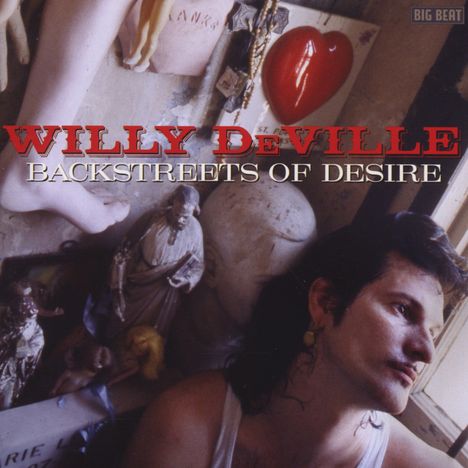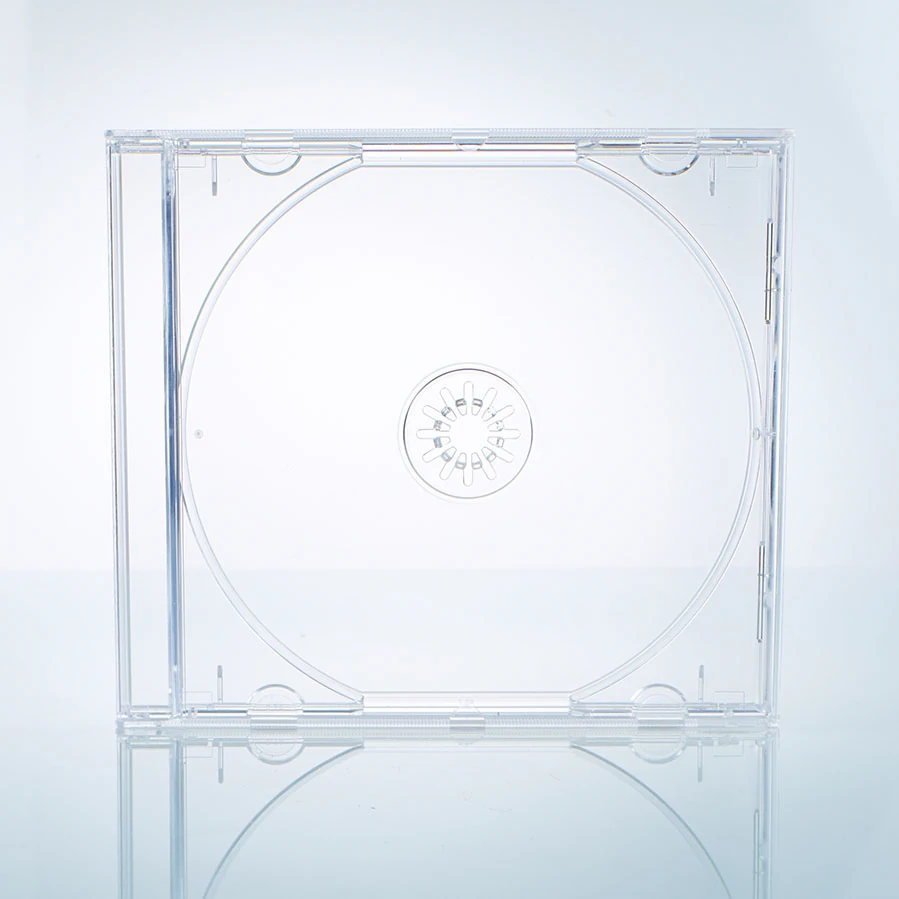Willy DeVille: Backstreets Of Desire auf CD
Backstreets Of Desire
Herkömmliche CD, die mit allen CD-Playern und Computerlaufwerken, aber auch mit den meisten SACD- oder Multiplayern abspielbar ist.
- Label:
- Chiswick
- Artikelnummer:
- 2483637
- UPC/EAN:
- 0029667430326
- Erscheinungstermin:
- 30.4.2012
Nachdem der begnadete Sänger seine Karriere mit dem gelungenen Album ‘Victory Mixture’ (‘In New Orleans‘ WIK 295) wiederbeleben konnte, nahm er zwei Jahre später das Album auf, das bei vielen Fans der späteren Willy DeVille-Phase wohl am eindrucksvollsten hängen geblieben ist: ‘Backstreets Of Desire‘. Wieder mit den New Orleans-Schwergewichten Dr. John und Zachary Richard an Bord, konnte man auch David Hidalgo von den Los Lobos für ein Gastspiel gewinnen. ‘Jump City‘ und ‘Bamboo Road‘ sind hier als Klassiker sicher hervorzuheben in der Reihe erstklassiger Willy DeVille-Songs, aber eine Nummer bildet dann doch den Fixpunkt des Albums: die Mariachi-Version des Hendrix- Klassikers ‘Hey Joe‘ schlug ein wie eine Rakete, und konnte sich in vielen europäischen Ländern hoch in den Charts platzieren.
Die neue Version des gesuchten Albums erscheint nun mit brandneuem Booklet, das sehr schön illustriert auch Interviews mit beteiligten Musikern sowie umfangreiche Linernotes enthält!
Product Information
Willy DeVille stands as a genuine American maverick. Born William Borsey Jr in Stamford, Connecticut, young Billy Borsey regularly decamped to New York, catching gigs by performers such as John Lee Hooker, Bob Dylan, Muddy Waters, Jimmy James (né Hendrix), James Brown and his personal hero, John Hammond Jr. The teenage dreamer wouldn’t get to release his first record until he was 27 and by then he was Willy DeVille and leading Mink DeVille, the house band at New York’s Lower East Side rock club CBGBs.
DeVille was then (and remains now) largely misunderstood – if not downright ignored – in the Anglo world. Initially labelled punk rock (many an obituary began “Punk pioneer . . .”), his one UK hit, 1977’s ‘Spanish Stroll’, helped cultivate a misconception that he was Puerto Rican. Signed to Capitol Records and produced by Jack Nitzsche – Jack later declared DeVille the greatest singer he ever worked with – Mink DeVille released three magnificent albums yet Capitol proved incapable of comprehending the talent they had: when the Knack, also on Capitol, sold millions in 1979 the label expected Mink DeVille to follow a similar new wave formula. But no one told Willy DeVille what to do.
DeVille may not have been a punk but he shared with many in the CBGBs scene a taste for heroin and loutish behaviour: his belligerent manner with journalists and record company staff alienated many music industry insiders. Across the 1980s he continued on a downward spiral – heroin addiction reducing the tall, broad-shouldered singer to a hunched, skeletal figure, and the four studio albums he cut (two for Atlantic, two for Polydor) were artistic and commercial failures.
Relocating from New York to New Orleans at the end of the 80s saved DeVille’s life and art. The sessions he cut there won him a loyal European following and have been gathered by Ace on “Willy DeVille In New Orleans”. Signing to French label FNAC (a record store chain akin to Virgin in the UK), DeVille set to work on the album that would become “Backstreets Of Desire”. Initially hoping to record in New Orleans with Jack Nitzsche producing, “Backstreets” involved much struggle and three producers (one of whom is Dr John directing a large Big Easy band). The album’s final recording, a rip-roaring, mariachi-flavoured take on ‘Hey Joe’, gave DeVille the biggest hit of his career and made “Backstreets” a best-seller across Europe. Never previously issued in the UK, Ace’s edition of the album comes with in-depth sleeve notes and previously unpublished photos from the sessions.
“Backstreets Of Desire” stands as a key album in Willy DeVille’s career and ranks amongst the best American music of the 1990s. In its mix of mariachi, soul, voodoo funk and acoustic ballads, “Backstreets” is a true American mongrel. Which is how Willy DeVille described his own bloodlines when I met him in Paris in 2006.
By Garth Cartwright
(acerecords. co. uk)
Rezensionen
,,Eine herzlichst willkommene Neuauflage (starkes Booklet!)." (Good Times, August / September 2012)
,,Das Meisterwerk des Blues-Magiers, vorzüglich remastered." (Rolling Stone, August 2012)
Disk 1 von 1 (CD)
-
1 Empty heart
-
2 All in the name of love
-
3 Lonely hunter
-
4 Even while I sleep
-
5 Voodoo charm
-
6 Come to poppa
-
7 Chemical warfare
-
8 Hey Joe
-
9 I call your name
-
10 I can only give you everything
-
11 Jump city
-
12 Bamboo road
-
13 All in the name of love (Salvation Army Version)
Mehr von Willy DeVille
-
Willy DeVilleMiracleCDVorheriger Preis EUR 16,99, reduziert um 0%Aktueller Preis: EUR 14,99
-
Willy DeVilleIn New OrleansCDAktueller Preis: EUR 15,99
-
Willy DeVilleLive In Paris And New YorkCDAktueller Preis: EUR 17,99
-
Willy DeVilleLive At The Metropol: Berlin, 24.6.2002CDAktueller Preis: EUR 17,99









